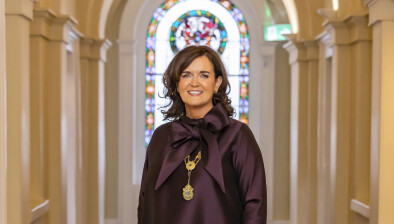State ordered to pay partial costs despite winning High Court case

The State has been ordered to pay 50 per cent of costs in a High Court case it won outright because it did not seek to have an eligibility point dealt with as a preliminary issue.
In a judgment published last week, Mr Justice Michael Twomey criticised the State for allowing the case to go on trial on three substantive claims as well as the eligibility point on which the State subsequently won.
The losing party, Word Perfect Translation Services, claimed that the State should have sought to have the eligibility point dealt with as a preliminary issue in order to meet its obligation to conduct the case in the most cost-effective manner possible.
Mr Justice Twomey noted that “in order for a winning party to get 100 per cent of its costs, it is no longer sufficient for that party to have been entirely successful in litigation”. Given the “well-publicised shortage of judges and a backlog in the courts’ system”, he said it was now “even more important” that costs orders encourage an efficient approach to litigation.
He said the existence of the obligation on parties to conduct the case in the most cost-effective way possible was clear from the wording of section 169(1) of the Legal Services Regulation Act 2015, which came into effect in October 2019, and recent judgments including Chubb v The Health Insurance Authority [2020] IECA 183 and Somers v Kennedy [2022] IEHC 78.
Although mediation is “the most obvious way in which litigants might resolve their dispute in the most cost-effective manner possible”, the judge agreed with the applicant that, in this case, the State should have sought to have the eligibility point dealt with as a preliminary issue.
The court estimated that around 20 per cent of the costs were taken up with the eligibility point, with the remainder of the time and costs spent on the three substantive claims.
However, Mr Justice Twomey said he would award 50 per cent of costs to the State because Word Perfect had also failed to seek to have the eligibility point dealt with as a preliminary issue. “If Word Perfect had done so, it would be in a stronger position to claim that it should pay only 20 per cent of the State’s costs,” he said.










